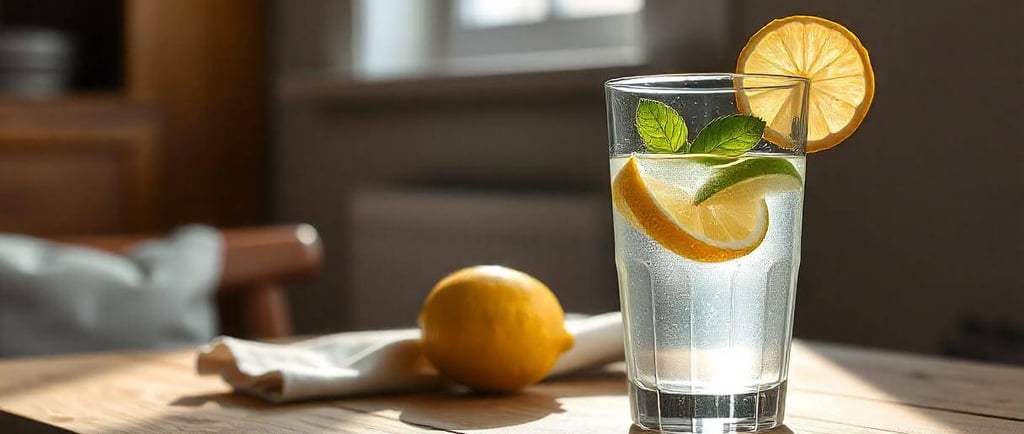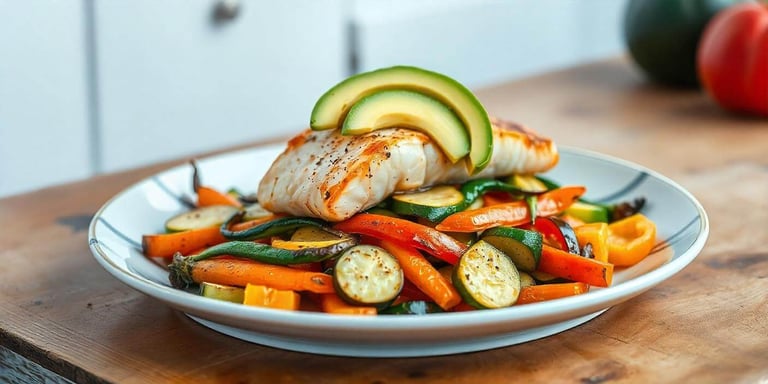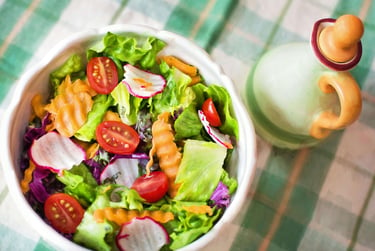Detox Without the Drama: Healthy Eating for Feeling Good After the Holidays
WELLNESS


The holidays bring a whirlwind of joy, celebration, and indulgence. From rich meals to endless desserts, our plates often reflect the spirit of abundance—and rightly so. But as the festivities fade, many of us are left feeling sluggish, bloated, and disconnected from our usual energy levels.
The instinct? Jump onto a strict detox plan or restrictive diet in an attempt to “undo” the holiday indulgence. But here’s the thing: your body doesn’t need punishment. It needs support.
Our bodies are remarkably efficient at detoxifying themselves through organs like the liver, kidneys, and even our skin. What they require post-holiday isn’t deprivation but nourishment—nutrient-dense foods, hydration, and habits that restore balance. Let’s explore how you can gently reset your eating habits, feel energized, and support your body’s natural detoxification process—no salads-only diets required.
Why Post-Holiday Eating Matters
After weeks of indulgence, it’s not uncommon to experience a few physiological changes. These include:
Blood Sugar Swings: Holiday treats rich in sugar and refined carbs can cause spikes and crashes in blood sugar levels, leaving you feeling fatigued and irritable.
Digestive Overload: Heavy meals and alcohol can overwhelm the digestive system, leading to bloating, sluggish digestion, and discomfort.
Inflammation: Foods high in sugar, trans fats, and alcohol contribute to low-grade inflammation, which can leave you feeling achy or foggy.
The goal of post-holiday eating is to gently reset these systems, providing your body with the tools it needs to restore equilibrium.
How Your Body Detoxifies Naturally
Detoxing isn’t a mystical process—it’s a natural, ongoing function of your body.
The Liver: Your liver acts as the body’s primary detoxification organ, breaking down toxins from food, alcohol, and the environment. It relies on nutrients like B vitamins, antioxidants, and amino acids to do its job effectively.
The Kidneys: These filter waste and excess fluid from the blood, maintaining electrolyte balance. Staying hydrated is key to supporting their function.
The Digestive System: Fiber-rich foods play a crucial role in eliminating waste and keeping your gut healthy.
The Skin: Sweat helps expel small amounts of toxins while regulating body temperature.
Rather than relying on extreme diets, your focus should be on supporting these natural processes through balanced, nutrient-rich eating.
How to Reset Your Eating Habits After the Holidays
1. Rehydrate to Rejuvenate
The holidays often bring a cocktail of dehydration triggers: alcohol, salty snacks, and sugary treats. Hydration is your first line of defense to restore balance. Water helps flush out toxins, supports kidney function, and maintains optimal digestion.
Pro Tip: Start your day with a glass of warm water and lemon. Lemon contains vitamin C, which supports liver function, and the ritual itself can help you feel grounded. Herbal teas, like ginger or dandelion root, are also excellent for promoting hydration and gentle detoxification.


2. Prioritize Whole, Nutrient-Dense Foods
Think of your meals as an opportunity to replenish your body with the nutrients it craves.
Leafy Greens: Kale, spinach, and arugula are rich in chlorophyll, which supports liver detoxification.
Cruciferous Vegetables: Broccoli, cauliflower, and Brussels sprouts contain compounds like sulforaphane that enhance liver enzymes.
Healthy Fats: Avocado, nuts, and seeds provide anti-inflammatory omega-3s.
Protein: Lean sources like chicken, salmon, or legumes stabilize blood sugar and provide the amino acids needed for detoxification.
The focus is on balance: a combination of macronutrients (protein, fats, and carbs) paired with micronutrients (vitamins and minerals) for sustained energy.


3. Rebuild Your Gut Health
Holiday indulgence can disrupt the delicate balance of gut bacteria, which plays a crucial role in digestion, immunity, and even mood.
Fiber-Rich Foods: Whole grains, fruits, and vegetables help “feed” good bacteria and promote regular digestion.
Probiotic Foods: Yogurt, kimchi, sauerkraut, or kefir reintroduce beneficial bacteria to your gut.
Prebiotic Foods: Garlic, onions, and bananas provide the “fuel” that probiotics need to thrive.
A healthy gut not only improves digestion but also enhances the body’s ability to absorb nutrients, supporting overall detoxification.


4. Reduce Inflammatory Foods
While there’s no need to cut out entire food groups, limiting foods that promote inflammation can help you feel better quickly.
Minimize refined sugars and processed carbs, which can contribute to energy crashes.
Reduce alcohol consumption to give your liver a break.
Avoid trans fats found in fried and heavily processed foods.
Instead, focus on anti-inflammatory foods like turmeric, ginger, berries, and fatty fish.


5. Move Gently, Not Intensely
Intense workouts may not be what your body needs right now, especially if you’re feeling low on energy. Gentle movement, like walking, yoga, or stretching, can boost circulation, support lymphatic drainage, and improve digestion—all without adding stress.
Pro Tip: A brisk walk after meals aids digestion and stabilizes blood sugar levels.


6. Practice Mindful Eating
Slowing down and paying attention to your meals can have a profound impact on how you feel. Mindful eating encourages you to savor each bite, listen to hunger cues, and stop eating when you feel satisfied—not stuffed.
Try starting meals with a moment of gratitude or simply eliminating distractions like phones or TV while eating.
Round-Up: Your Gentle Post-Holiday Reset
Hydration is Key: Start with water and herbal teas to support kidney and liver function.
Eat Whole Foods: Focus on nutrient-dense greens, healthy fats, and lean proteins.
Rebuild Your Gut: Incorporate probiotics, prebiotics, and fiber for digestive health.
Minimize Inflammatory Foods: Reduce sugar, alcohol, and processed options.
Move with Intention: Choose gentle activities to support circulation and digestion.
Eat Mindfully: Slow down and savor your meals for better digestion and satisfaction.




Nourishment Over Deprivation
Healthy eating after the holidays isn’t about “fixing” your body or erasing indulgences—it’s about reconnecting with balance and giving yourself the gift of nourishment. By focusing on hydration, whole foods, and mindful habits, you’ll not only feel better physically but also foster a sense of peace and clarity.
The key is sustainability. Let this gentle reset set the tone for the new year—a reminder that taking care of yourself doesn’t have to come with drama, guilt, or restriction. Because when you eat in a way that honors your body, you’re not just detoxifying—you’re thriving.
Willow & Linen
Embrace slow living and create cozy moments.
let's stay in touch
© 2024. All rights reserved.
